
Who is this hidden American composer behind some of the greatest bops in K-Pop?
As we all know, K-pop comebacks do not simply materialize out of the blue. Every song and album work have been carefully crafted and rearranged through a collaborative process made possible by producers worldwide. Without these songwriters, there wouldn't be a song, the fundamental recipe that allows endlessly interesting concepts and MVs to work together to simultaneously create the visual wonderland that is K-pop.
David Amber, the producer behind the work of TWICE's "Heartshaker" and "Yes or Yes", is a rising songwriter among many of the industry's powerhouses. He has also written singles for EXO-CBX, UP10TION, fromis_9, NCT Dream, and Dream Note, including the Japanese releases of some of these artists, as well as the cherished B-side tracks of SF9, LOONA, ASTRO, GFriend, and more. Based in Los Angeles, this American songwriter proves himself as a frank and laid-back producer, describing himself as "not the coolest composer out there," but the most positive and authentic one he can be. His songs for TWICE and SF9 have recently hit #1 and #2 on the Japanese Oricon charts, proving that the albums containing those songs are already some of this year's favorites among fans all over Asia.

AllKpop had a chance to sit down with David Amber at his studio in LA, his cozy "cocoon" where everything begins. From his love for the multifaceted genre to the memorable back stories of his inspirations behind these K-pop songs, the interview as a whole covers more than just a few things you should know before going back and re-listening to those catchy tunes.

How did you first get into writing music for K-Pop?
I was working in New York as a commercial writer, doing some random sessions with a few writers. But, there’s not that many writers in New York, as far as pop writers, so one of my friends introduced me to an LA writer who was visiting New York and was also doing sessions in Japan. So, we did a session together, and randomly, the song got cut by Heo Young Saeng from a group called SS501. So, it was all just really random. This was maybe in 2013?
So, you’re originally from the East Coast of the United States. What were some of your previous music backgrounds or interests?
When I was a kid, I listened to J-Pop, J-Rock -- L’Arc En Ciel and X-Japan. But, I've always liked Girls’ Generation, like some of the bigger K-pop groups. The Heo Young Sang cut just came randomly. But, it introduced me to a publisher in Japan that was also in Korea. So, over the years, I kind of kept in touch with them. After a while, when I wasn’t really doing anything, I decided that I hated doing commercials and was like, ‘all right, I’m moving to LA!’ All the songwriters were out in LA, so I moved out here and talked to them – ‘hey, can you introduce me to some writers that are doing cool stuff in Asia?’ And, they did. I also met up with somebody from SM around that time, one of the A&Rs, and they introduced me to some other writers. So, when I moved out here in LA, I got into that world. That was 2016, when I started writing with these people and got my first cut at the end of that year.
With Girls' Generation's Hyoyeon, right? For her solo single “Mystery”?
Yes, with Hyoyeon! Which was exciting to me -- it was awesome! And there was a video, which was cool. And, once that happened, I kind of started flying out to Korea on my own time, meeting all the people from different labels and shaking hands…you know that whole thing. Then, I started getting into EXO and these different groups and thought – ‘this is awesome. I love this music.’ And, it just all went from there.
It’s cool how you already had a great interest in K-pop and J-pop, then the opportunities came through naturally.
Yeah. So, once I had that Heo Young Sang cut in Japan, I started checking more stuff out. I also loved SISTAR, their happy stuff, which reminded me of some of the J-pop music I used to listen to when I was younger. So, I was like, 'I like this.' This is something I’m into.
And did you just come across these songs on YouTube, through surfing?
Right. It all started from Girls’ Generation, especially with “I Got a Boy”. I was like, 'this is awesome!' It was like the “Bohemian Rhapsody” of K-pop. I was like, ‘they let you do this?’ You know, that’s like the songwriter’s dream, just to do whatever we want to do. So, I went down the rabbit hole and started learning about the different groups. Some groups I like more than others. There’s certain vibe that I personally gravitate towards.
Right, and the diverse genre of the K-pop scene was obviously very appealing to you.
Yes, I like how wide open it is. I don’t feel bound. I could do a song and don’t feel like there's no chance that this will get cut. I think I can do a lot of different things. Kind of like flexing a muscle, you know. There’s going to be somebody out there who will be interested in recording the song that I just made. So, it’s cool to me how musically open they are, how open-minded many K-pop labels and entertainment companies can be.
You wrote these two mega hits for TWICE – “Heartshaker” and “Yes Or Yes”. What was that process like, and how was it like working with TWICE? Do you ever get to work closely with the artists?
I’ll say this up front. Generally, as the composers, we don’t get to be in on the vocal production of the records. I mean, I know some friends who wrote ”Knock Knock” for TWICE did some of the vocal direction with them, especially for the Japanese versions like “Candy Pop.” But, I mean, we’re here (in LA) and they have vocal directors that they work with. So, unfortunately, we’re not very involved in that process. However, the songs that we create, the demos, they are pretty much what they are. So, in that process, with “Heartshaker” in particular, the A&R from JYP had asked me for songs, and I was like ‘okay, they are a group that’s worth really putting everything into.’ So, I think, for that pitch, we did nine songs, and “Heartshaker” felt good when we did it, almost right away. After I sent them all the songs, with “Heartshaker” being one of the last ones, the A&R team got back to me within a week. They chose it ["Heartshaker"] and said they really wanted to use the song. Then, maybe a month later, they told me that it was going to be a single. Pretty much as it was. I did the song, and no changes, really. Which is usually not the case.
Do you often have to compromise with the company or the artist to change the song for their specific needs?
It depends. So, for fromis_9's “Love Bomb,” there were changes from the original. But, they were good changes. So, I had to re-run making them. They said, ‘why don’t you try this?’ and I thought, ‘the original is good; I don’t think we should change it.’ But, you know, it was ultimately very collaborative. They weren’t just like, ‘change this, change that.” In that situation, it was good, so I had no problem doing it. For “Heartshaker,” we did change that one, too, actually. One of the original melodies in the chorus. But, other than that, they took it as it was.
What about the process of creating TWICE’s “Yes Or Yes”?
“Yes Or Yes,” was one of those stories where, you know, right after “Heartshaker” came out, they were like, ‘we want to do another song like this, because it’s working.’ But, “Yes Or Yes” was a song that I had sent to them a couple months previously. It was originally titled “TLC (Tender Loving Care)”. [JYP] called me up, I think it was like New Years Day. They said, ‘we want to use that song.’ But, literally, the day before that, another group had wanted the song first. So, I was like, ‘could you guys possibly have any worst timing?’ (laughs).
And, you said all this happened around New Years? How did the song eventually find its way back to TWICE?
Yeah! I was visiting my parents in New Jersey, in my childhood bed from growing up [laughs]. And, of course, in Seoul, Korea, the time zone is completely different, so they called me at 2 AM in the morning. First, I called the other company to see if they were going to buy it and found out that it was definitely happening, so, I was like (to JYP), ‘sorry!’ But, at first I didn’t even know what was going on. Sometime later, the other group had put out another record, and the song wasn’t on it. The company told me, ‘oh no, we want to use it for the next one.’ And, meanwhile, JYP had come back to me and was like, ‘we noticed that the song wasn’t on the (other group’s) record. What’s going on?’ So, luckily, I was able to work back. I got the song back and asked (JYP), ‘are you guys still interested in it?’ And, they were.
It’s cool how all these companies would reach out to you again over time.
Yeah. So, it was all this process of making sure that the song finds a home. Luckily, it ended up where it did.
Yes, and people loved it!
It was great – perfect, actually. I mean, I originally wrote the song for TWICE, so that was one that I specifically wrote for them. It made sense for TWICE to have the song.
And, of course, congratulations on these TWICE songs that were included in the Japanese albums that hit #1 on the Oricon Charts! You also have another album with your songs that hit #2, ‘ILLUMINATE’ by SF9, right? How did you feel when you first found out?
It felt awesome. Especially because it was in Japan. Growing up, listening to J-Pop, and getting my songs as #1 and #2 in Japan, and with the record getting #1 at the same time. Can it get any cooler than that? I mean, not many people get to experience that.
Last year, the Japanese track you made for UP10TION, “Wild Love,” that one had also made it into the Oricon charts #2 as a single. Right?
Yes, it did. They [UP10TION] do really well in Japan!
But, as a songwriter, do you sense that there’s a difference between J-pop and K-pop?
For sure. I mean, there are definitely different levels of J-pop. Like, there’s the Johnnys type of stuff as well. It’s cool – I like doing that. I can’t do it all the time, but doing an Arashi type thing? I like doing those. I don’t want to make it my career, but it’s nice. There are all these different levels (in Japan). There’s LDH, which is a little more EDM. Everyone thinks J-pop is just like crazy 200 bpm, but it’s not! But, I think overall, the vibe of K-pop is a little more international-leaning, though. I don’t know exactly, but I guess Japan is a little more insular. They have a very big music industry, even within just the country itself. So, they don’t necessary try to export that, whereas in K-pop they do. Like the way BTS and Black Pink do it. There’s more of an international thing going on in there.
So, do you think that difference was also applied to EXO-CBX’s Japanese song “Ringa Ringa Ring”? Was that song originally intended to be a Japanese track?
Not really! But, actually, I think when I try to do those “hardcore” boy band stuff (in Japan), my natural things is – maybe it’s from me listening to J-pop but -- it’s not always the way EXO in Korea or what EXO-CBX in Korea would do. Maybe that’s just my inclination. But, we were still trying to do an ‘EXO’ type of song.
Then, how would you describe YOUR sound, either for that “hardcore boy band” stuff or also for girl groups in K-pop? Because you did a bunch of girl group songs as well.
I think there’s a certain lightness to my songs. Even with the “harder” ones, I just think that there’s some kind of…I like songs that make me feel happy. Like, when I get the chills. [The songs] are not super “swaggy.“ I’m not the coolest song writer. But, I think that comes through as being more about the emotional feeling of it. Euphoric, in a way. I just want that chorus part of the song to hit you euphorically.
Stay tuned for Part 2 of the interview.
 SHARE
SHARE
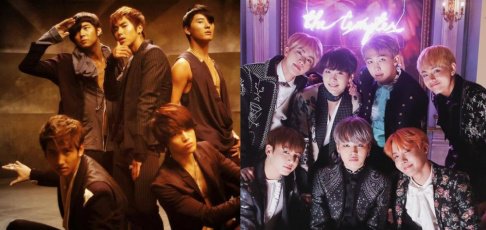


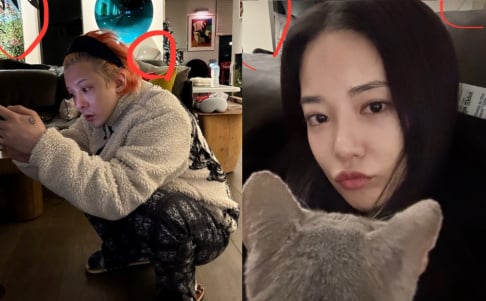
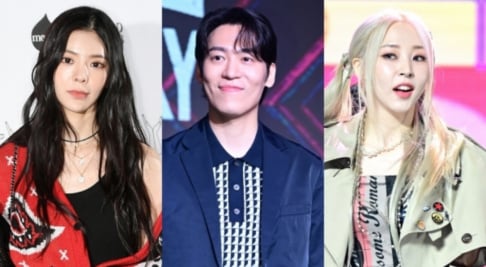
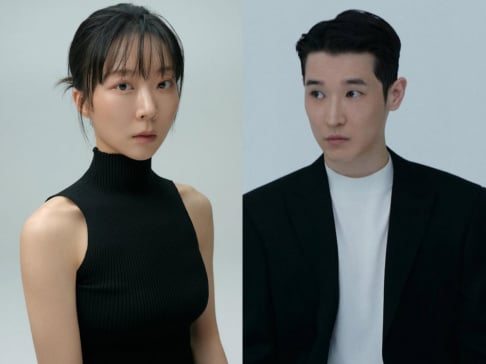
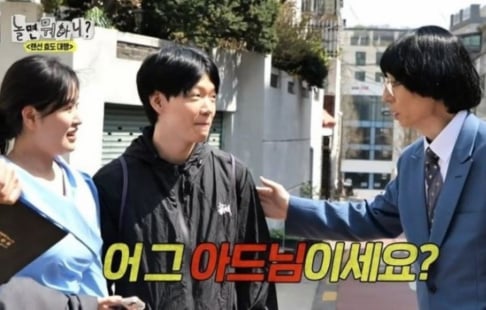
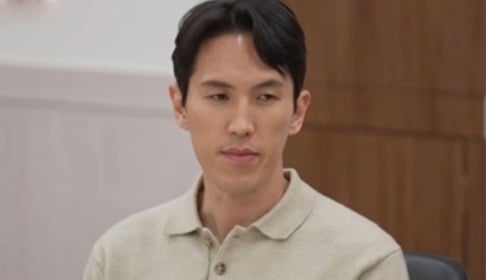
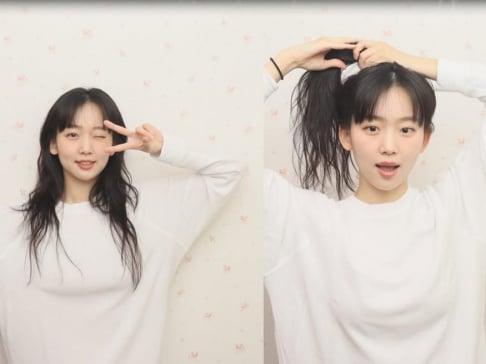
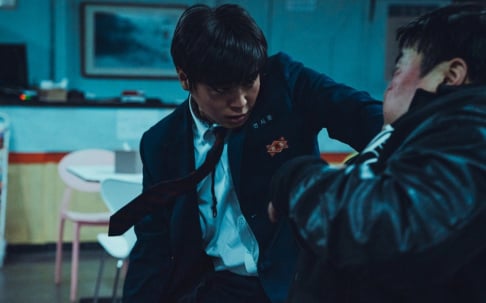
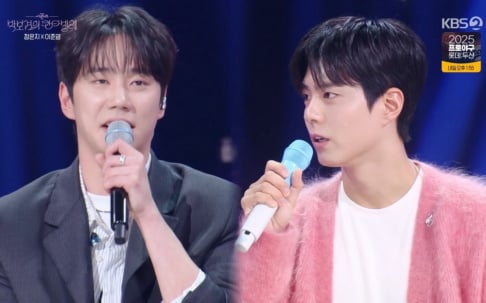
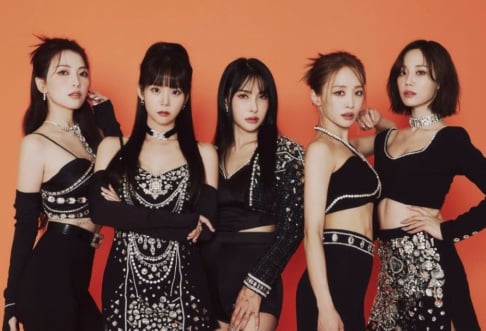
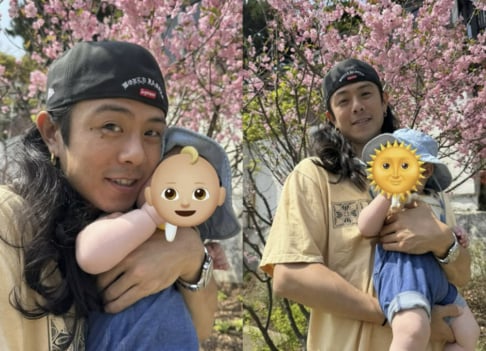
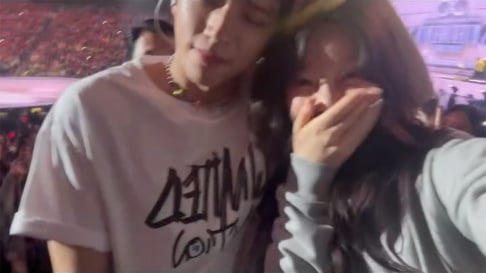
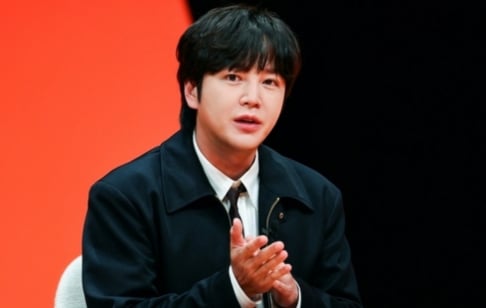
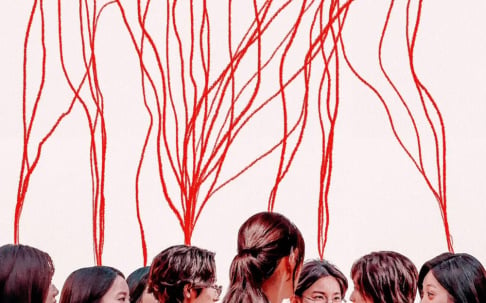
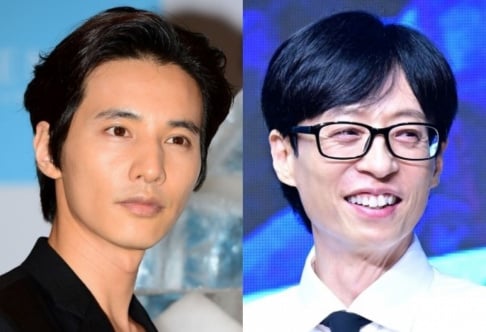
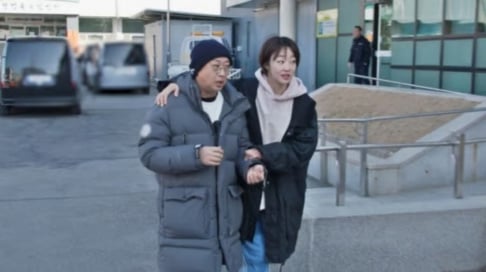
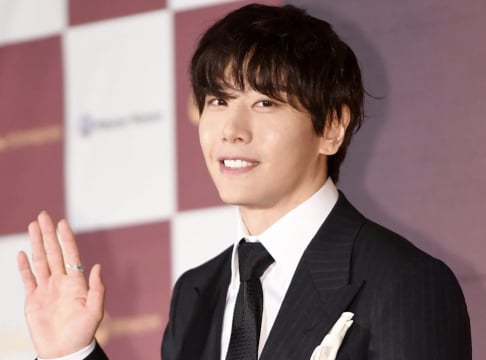
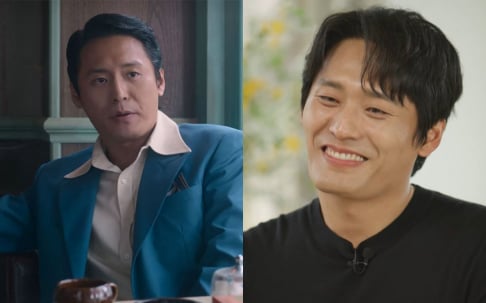
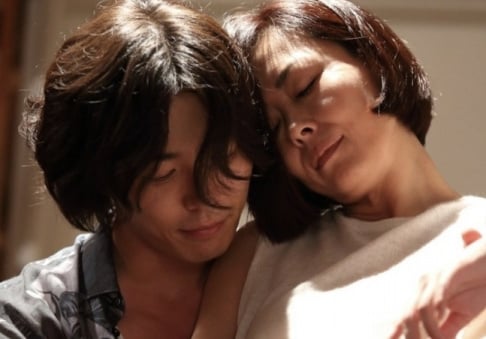
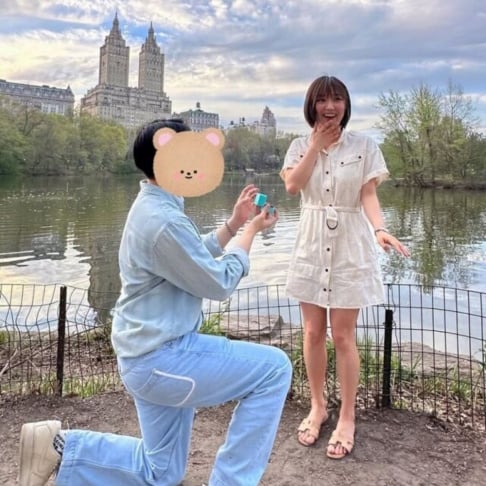
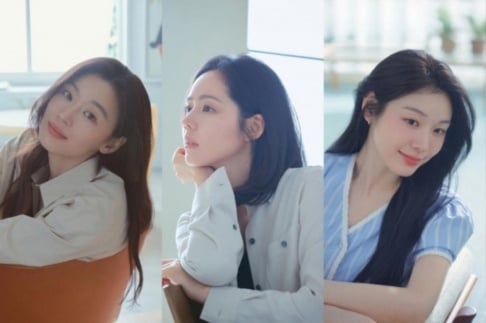
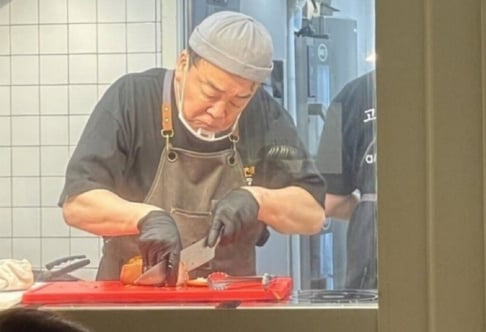
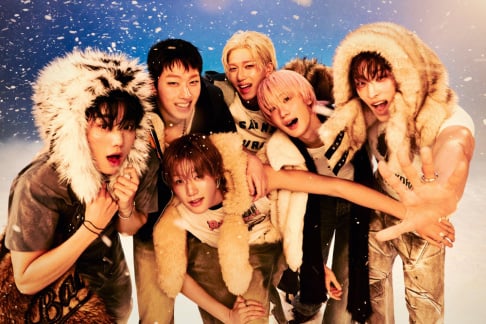
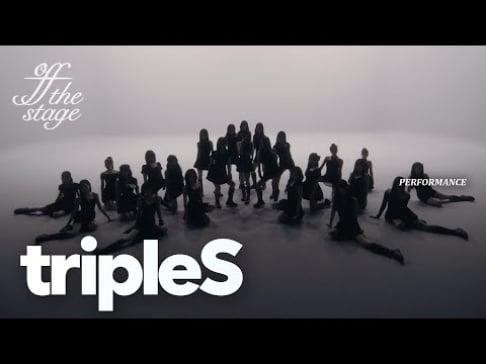
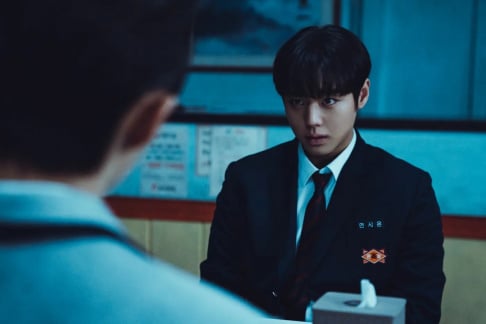
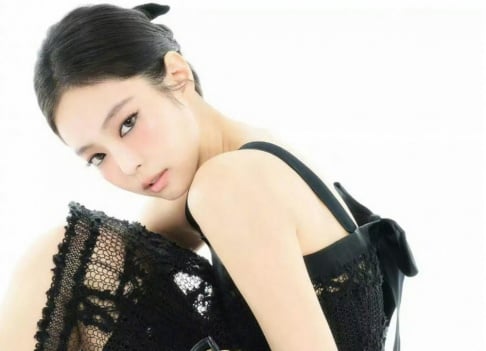
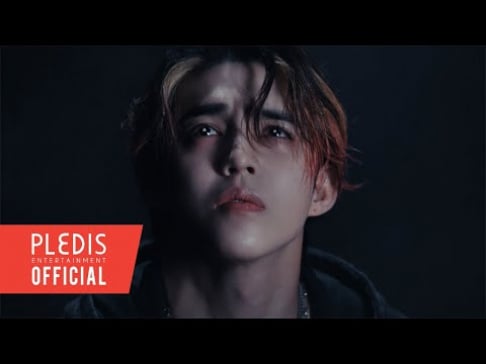
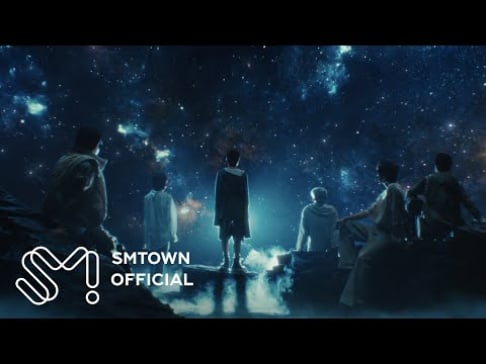
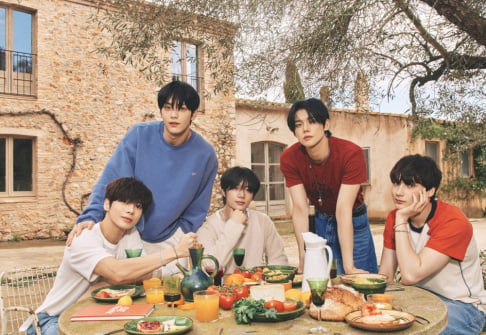
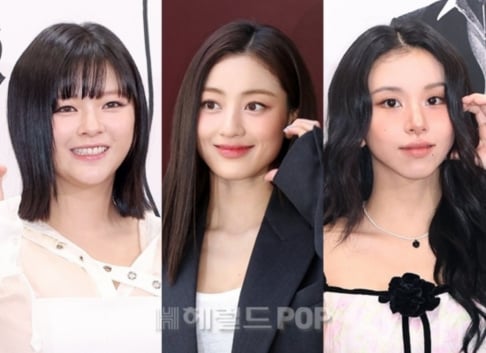
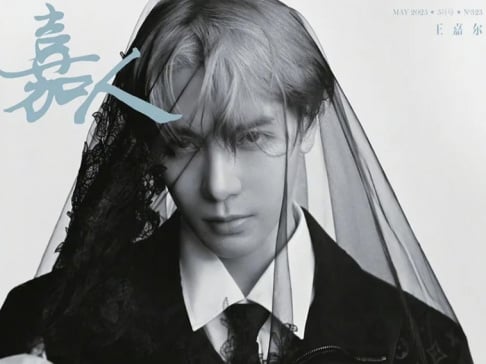
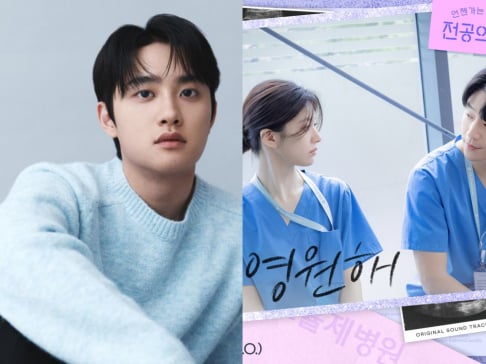
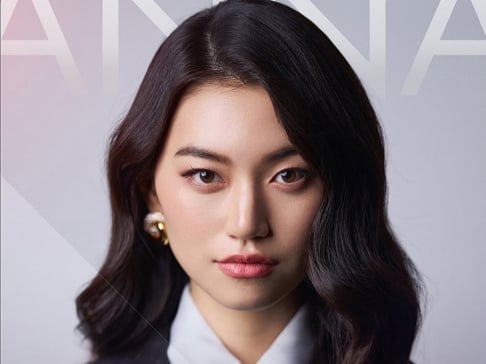
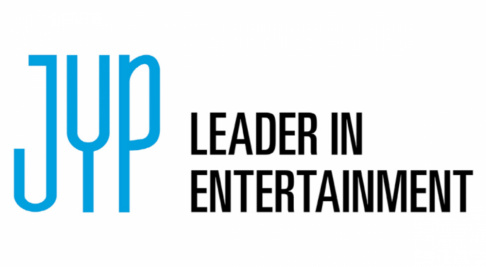
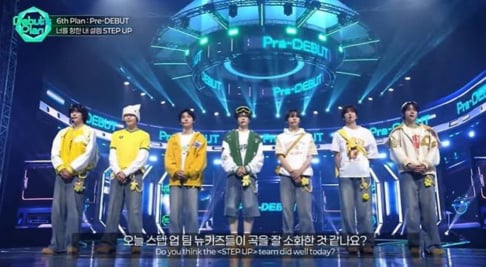
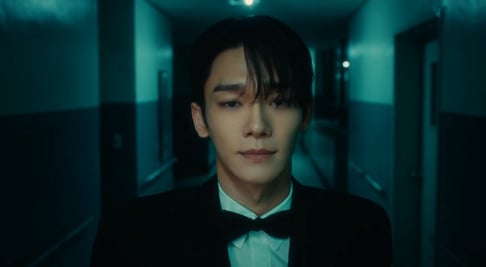
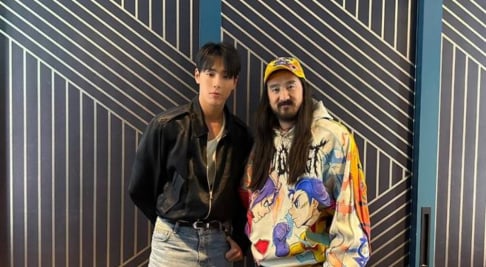
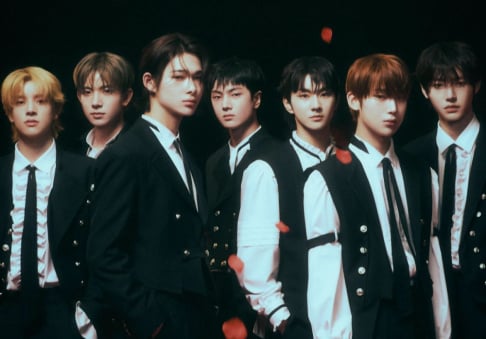






[+] This user has a poor community rating, click here to read this comment.
1 more reply